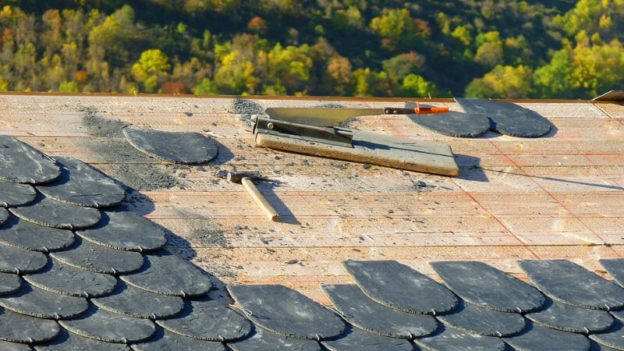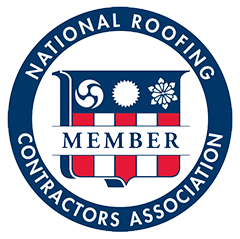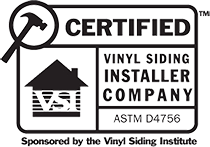You probably think that residential and commercial roofing are reasonably similar. While this can sometimes be true – it’s quite often not the case. Both commercial and residential roofs have a distinct set of characteristics and specific demands that often require a completely different approach.
In this article, we’re going to look at the difference between residential and commercial roofing.
While you might be able to find some commercial roofing contractors who specialize in both – many roofing firms only look after either residential or commercial roofs. That’s because they’re almost a completely different industry and require a different set of skills and materials. We’re going to look at some of the key differences.
So, what are some of the key differences between residential and commercial roofing?
They use different materials
First and foremost, the type of materials recommended for residential and commercial roofs will often vary quite a lot. While there’s sometimes some crossover, you should expect to use completely different materials if you’re roofing a home compared to roofing a business.
One area where that’s started to change in recent years is with metal roofs. These were often a mainstay of commercial and industrial roofing, but were rarely used in residential roof construction.
That’s slowly started to change – and more and more residential architects are starting to incorporate metal roofs into their designs. That’s because of the relatively low cost of a metal roof, along with how light and durable it is. However, this is often just in architecturally designed homes rather than mass-market residential roofing.
The reason different materials are used for either residential or commercial roofing is because those types of buildings have different requirements and needs. Many commercial buildings will need to cover a much larger area, while residential roofs have to keep the home weather-proof and warm to a much higher degree of certainty.
That’s why residential roofs are often steeper, to help with the flow of rain and snow from the property. This is less important for commercial properties that don’t have people living in overnight – and also because a flatter roof is cheaper when covering a much larger area (commercial buildings can be much, much bigger than residential homes).
They’re for different size buildings
We touched on this already, but commercial buildings are often much bigger. That means they need a slightly cheaper solution to cover a larger area whereas residential homes need something that is as weather-proof as possible for a smaller footprint.
The slope of the roof plays a big role in weather protection, and it’s why residential roofs often have a much steeper pitch. This kind of steep roof would be extremely expensive and difficult to put in place on a large commercial building, which is why a low flat roof is often good enough – especially as these aren’t buildings people live in.
The cost will vary a lot
Cost plays a huge role in the difference between commercial and residential roofs as we’ve already looked at. Low metal roofs are cheap for large buildings, and it’s actually why more and more residential architects are incorporating them into their design. However, they are traditionally only for commercial buildings.
A hand-built slate or tile roof can be more expensive, but might provide better insulation for a building. That’s why it’s popular for residential homes that don’t cover the same large area as commercial buildings.
Many business owners simply want the cheapest roof possible to keep their building secure, rather than thinking too much about insulation and weather protection.
They have different designs
Again, we’ve already touched on why – but commercial and residential roofs will vary a lot when it comes to design. As we’ve already looked at, low metal roofs are better for covering larger areas whereas residential constructions have slightly higher demands for protection (but smaller areas to cover). That’s why many residential buildings have steeper roofs.
Different skills to install
While cost might be important for both types of roofs, and a low metal roof might be cheap to per square-meter – commercial roof constructions are actually quite difficult to install because of their size.
This can require a different set of skills to sometimes simple residential roofs, and not all roofing providers are experts in both. That’s why it’s important that you take your time when choosing a roofing constructor in your area.
Some firms will be expert at both commercial and residential roofing whereas others will simply specialize in one or the other.
Different finishes
Not only are the main roof builds often different, they’ll also have different finishes and touches that can vary a lot. Things like chimney repair or construction can be common in residential builds and require a specific set of skills to work with or around.
You might also want solar panelling so that you can move towards self-sufficiency and help the environment in the process. Again, this type of installation can require a roofing firm with the right experience.
How to find the right roofing contractor for your residential or commercial roof
As we’ve looked at – there are lots of differences between residential and commercial roofs. While you can find one contractor who’s great at both, this isn’t always possible. If you’re looking for a residential roofer, ask your neighbours or other people in your local area if they know someone they can recommend.
If they’ve had their roof done before, they might be able to point you in the right direction of someone they recommend (or someone to avoid).
Check online and weigh up the quotes from different firms before you make a decision. If you can, ask to see their portfolio of work or even finished roofs they’ve worked on. Picking the right roofing firm is an important decision whether you need a commercial or residential roof, so it’s not one that should be taken lightly.












